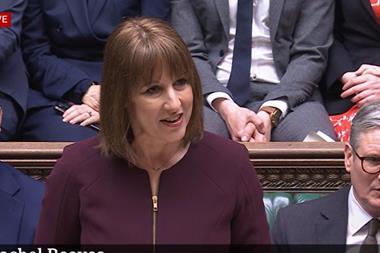ACS urges Chancellor to create conditions for growth in the sector after £666m budget hit

Nearly a month after the Budget, the ACS continues to warn the Government about the measures concerning the UK convenience sector
ALREADY HAVE A REGISTERED USER ACCOUNT? PLEASE LOG IN HERE
To read the full story join the ConvenienceStore.co.uk community today!
Registration is quick and easy and provides access to:
- Unlimited ConvenienceStore.co.uk articles
- Our great range of newsletters
- Content you’ve saved for later via the ‘my library’ feature
And much more…































